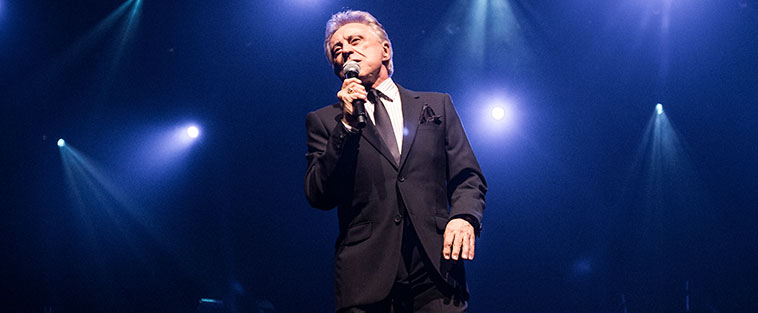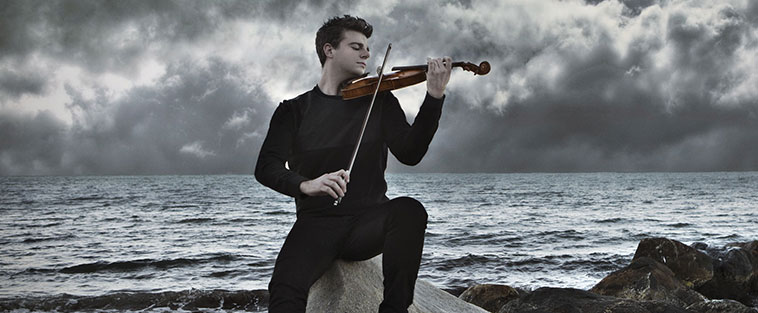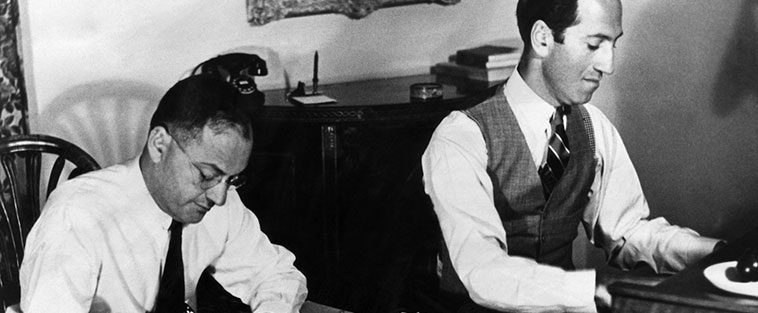“We’ve always loved Ravinia,” says Lee Loughnane, the sole trumpeter the band Chicago has had since its inception in 1967. “It’s great to be able to come back and play the music that we’ve all grown up with: we grew up writing and playing it, you folks grew up listening to it. We haven’t played Ravinia in a few years, and we’re excited to come back and play two nights [August 10 and 11]. And if you like the Chicago Symphony and the group Chicago, you will like the surprise we have for you on those two nights! I won’t tell you what it is, but you have to come to the show to see it.”
Read MoreRavinia
The Other Adams: Samuel Adams's Music Blends Multifarious Influencers
Several concerts on the just-concluded 2017 Ravinia season were devoted to the music of John Adams in celebration of the American composer laureate’s 70th birthday year. But there is another Adams in town, John’s son Samuel Adams, who is beginning his third and final season as composer-in-residence at the Chicago Symphony Orchestra. Along with co-composer-in-residence Elizabeth Ogonek, Adams is also co-curator of the CSO’s MusicNOW series, which is celebrating its 20th anniversary this season.
Robert Chen: The CSO Concertmaster Musters a solo concert
It's an oft-told tale. A little girl, attending her first live symphony concert, is enthralled by the imposing conductor waving a baton. She turns to her parents: “Mommy, Daddy, that’s what I want to do when I grow up.” A little boy, hearing a flute or a clarinet or a violin or a tuba for the first time, is mesmerized. He clamors for an instrument of his own. Decades later, that little boy and girl have become internationally acclaimed musicians accepting the applause of audiences from San Francisco to Sydney, Australia.
Tim Fain and Nicholas Britell Bring Wide(screen) sounds with "Once Upon a Score"
Even just a decade or two ago, classical musicians might look back occasionally to the Baroque era or try out a new work, but most stuck to Johannes Brahms, Franz Schubert, and the genre’s other tried-and-true standard bearers. But today, many of the field’s younger generation of artists, who can access music from virtually any time or place in seconds on their iPhones, don’t feel nearly so confined. They might play a quartet by Ludwig van Beethoven one night and then join forces with an indie-rock band the next.
A Man For All Seasons: Frankie Valli Embraces the Moment to Keep his group on a high note
Frankie Valli and The Four Seasons never had an autumn. They are of their time, and timeless.
With his early life and crooning career chronicled in the multiple Tony Award–winning and internationally successful stage musical, Jersey Boys—along with a movie version directed by Clint Eastwood—a five-decade catalogue of blockbuster hits, and even a sinister stint on TV’s The Sopranos, Frankie Valli is a well-deserving pop culture icon.
Chad Hoopes: A Violinist Cooking Up Solo Concerts
Chad Hoopes was apportioned an arresting array of adjectives in a Washington Post review of the violinist’s Kennedy Center debut last year: “jaw-dropping,” “a little intoxicating,” “glowing,” “gripping,” “smiling-slash-snarly” (his performance of Ravel’s tempestuous Tzigane).
But it’s a verb in the first sentence that catches the eye: “The gifted young violinist Chad Hoopes has been rising—or maybe hurtling—toward international stardom since taking first prize in the junior division of the Yehudi Menuhin International Violin Competition in 2008.”
On the Surf(ace): Switchfoot Doesn't Bottle Up It's Message
At face value, Switchfoot is one of the most engaging and entertaining alternative rock acts to come out of Southern California in the last 20 years. But those who take a longer look at the Grammy Award–winning group will also find some of the most socially conscious, spiritually enlightening, and ultimately thought-provoking lyrics of their generation.
Of course, that’s yielded smash singles such as “Dare You to Move,” “Meant to Live,” and “Stars,” plus multiplatinum- or gold-selling modern day masterpieces such as The Beautiful Letdown, Nothing Is Sound, and Learning to Breathe. However, Switchfoot also built up a sizeable community of listeners who’ve been consistently challenged by the band members to make a difference in their corner of the globe. In fact, both the band and their fans did exactly that earlier this season at the 13th Annual Switchfoot BRO-AM, which merges a massive music festival and surf contest, with all the proceeds benefitting various children’s charities.
I Love a Piano, Piano: The Naughtons' Four-Handed Sibling Revelry
“I think one of the cool things about four-hand piano,” says Christina Naughton, “is that it allows the deepest communication between the two players, because it may be the only form of chamber music where the players actually share the instrument.”
“It’s fun and it’s a different form of communication than chamber music,” chimes in Christina’s twin sister and piano duo partner, Michelle Naughton. “It’s really unique to its own self. It’s an art in itself. Family is a big part of that, too, and you can see that with Mozart’s and Mendelssohn’s music: they wrote stuff to be played with their siblings who were also fantastic musicians.” Not coincidentally, four-hand piano works by those two composers are central to the Naughton sisters’ Ravinia-debut performance on August 24.
Rewind: August 27, 2002
It’s a no-brainer to say that music is Ravinia’s passion. And yet, until 15 years ago the only musical Passion that had been heard at the festival was J.S. Bach’s Saint Matthew Passion—granted, it is the most popular setting of the narrative in classical music today. (Before James Levine led the Chicago Symphony Orchestra and Chorus in a pair of performances of Bach’s masterpiece in 1978 and 1980, Ravinia had presented back-to-back performances of Andrew Lloyd Webber’s Jesus Christ Superstar in 1971, but its loose interpretation of Biblical accounts makes its categorization as a Passion narrative questionable.)
A Balance Paying Off: James Gaffigan finds an Island in Lucerne
The oft-quoted New Testament adage about prophets struggling for credibility in their own countries certainly seems to apply to American conductors. While some noted ones like James Levine and Marin Alsop have built their careers largely in the United States, others have had to make their marks in Europe before they could land a major post in their home country. Examples include David Zinman, who served as principal conductor of the Rotterdam Philharmonic prior to becoming music director of the Baltimore Symphony in 1985, and Alan Gilbert, who was principal conductor of the Royal Stockholm Philharmonic in advance of taking over as music director of the New York Philharmonic in 2009.
Rewind: August 21, 1912
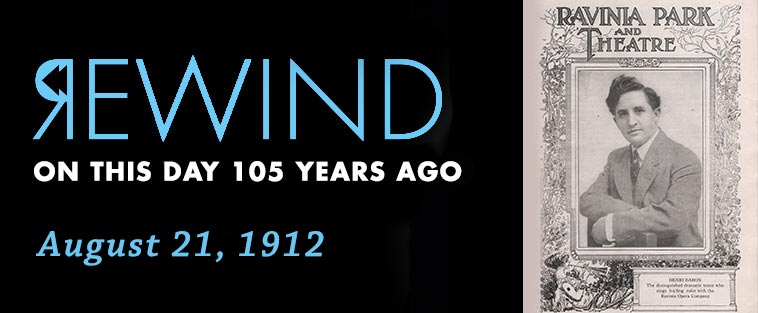
Before Ravinia emerged from the Great Depression in 1936 to begin hosting the incomparable performance residency of the Chicago Symphony Orchestra, it was for about a decade and a half known as the “summer opera capital of the world,” presenting many of the Metropolitan Opera’s foremost stars in selected scenes or acts of that venerable form of music theater. The performances were often so abridged so as to accommodate the schedule of the trains that were the primary means of travel to Ravinia (indeed, it was originally founded in 1904 as a general amusement park along the train line). However, not all operas are multi-hour, multi-act epics.
Rhymed Conversation: Ira Gershwin brought effortless composure to songwriting
In 1896, Morris Gershovitz and his wife, Rose, were living above a pawnshop on New York’s Lower East Side. In December of that year, the immigrant couple saw the birth of their first child, a son, whom they named Israel. In September of 1898, the Gershovitzes, now in Brooklyn, welcomed their second son, Jacob. Within a few weeks the family moved back to Manhattan, where they occupied a second-floor flat above a phonograph shop.
Feeling Lucky Punk: Chris Carrabba is Happy to Wear his Emotive Music on his Sleeve

You can’t talk emo culture without certain bands immediately rolling off the tongue: Jawbreaker, Sunny Day Real Estate, Death Cab for Cutie, Alkaline Trio, Rites of Spring—and, of course, Dashboard Confessional, whose lead singer, Chris Carrabba, became the unofficial poster boy for the genre, characterized by emotional, hardcore punk and “confessional” lyrics. When Carrabba sang “I’m reading your note over again / There’s not a word that I comprehend /Except when you signed it / ‘I will love you always and forever,’ ” a generation of music fans felt his guitar-driven angst.
Sistema Ravinia Student Plays in National Take a Stand Festival Orchestra
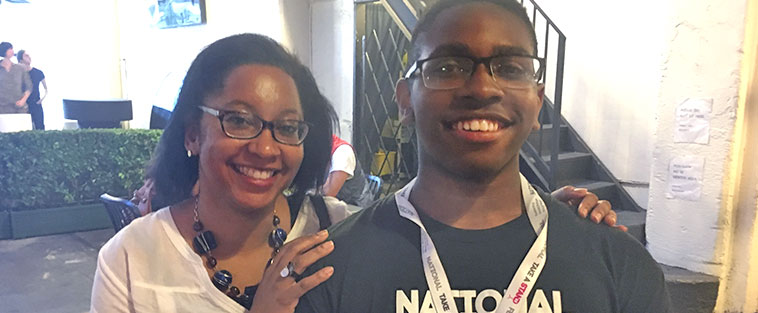
A hundred young people between the ages of 12 and 17, representing the diversity and inclusivity that we long to see in classical music, performed together in a festival orchestra at the Los Angeles Philharmonic’s Walt Disney Hall on Saturday, July 22. The orchestra comprised students from El Sistema–inspired programs around the country who were selected by audition, including one of Ravinia’s own—13-year-old Michael Robinson! The French horn player’s only access to music education has been through the Sistema Ravinia program at Catalyst Circle Rock School on Chicago’s West Side.
Rewind: August 5, 1937
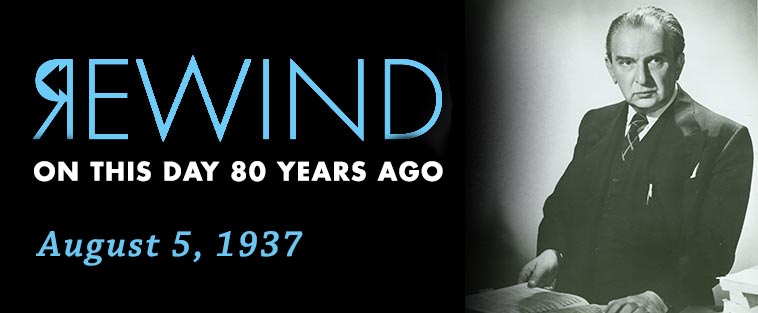
Now in its ninth consecutive decade, the musical partnership between Ravinia and the Chicago Symphony Orchestra continues to be a uniquely fulfilling one, with the six-week summer residency of the orchestra regularly featuring about as many programs as might be heard downtown over the rest of the year.
Bach to Bach: Going for Baroque is an Instrumental Decision
A significant debate in the performance of classical music that originated in the mid-20th century was whether or not to play Baroque-era music on 18th-century instruments or on their modern-day counterparts.
Rewind: August 1, 1967
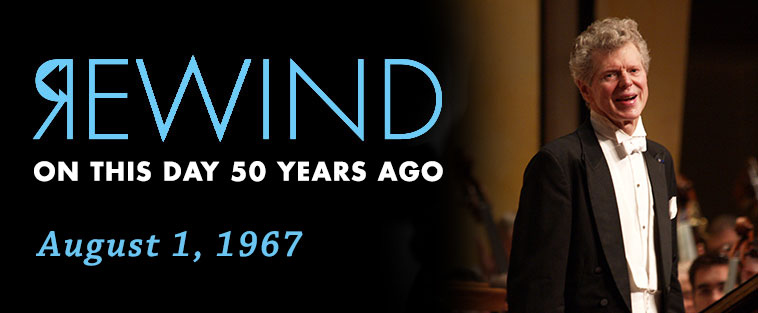
At a time when conflict with Russia weighed heavily on many minds—no, not today; during the mid-20th century—there was one thing that the then-Communist nation and the United States could agree upon: Van Cliburn was a great musician. In 1958, as the Cold War was escalating, Moscow inaugurated what is still today one of the most closely watched events in classical music, the International Tchaikovsky Competition.
Rewind: July 22, 1977
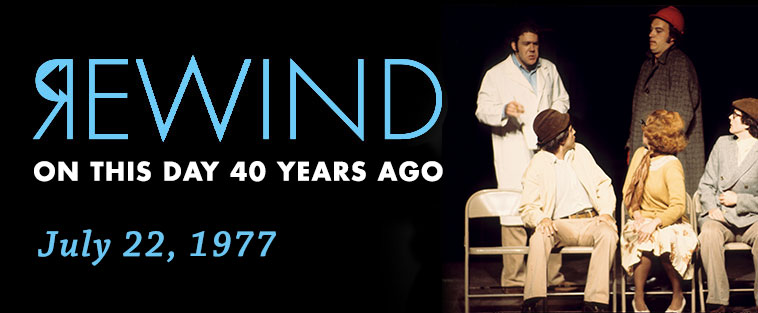
From semistaged operas and musicals to plays and other performances of spoken word, top stagecraft has long been a part of Ravinia’s DNA, but even longtime fans of the festival might be surprised to learn that during a three-year period in the late 1970s, you could enjoy violins at 8 and violent laughter at 11.
Rewind: July 6, 1967
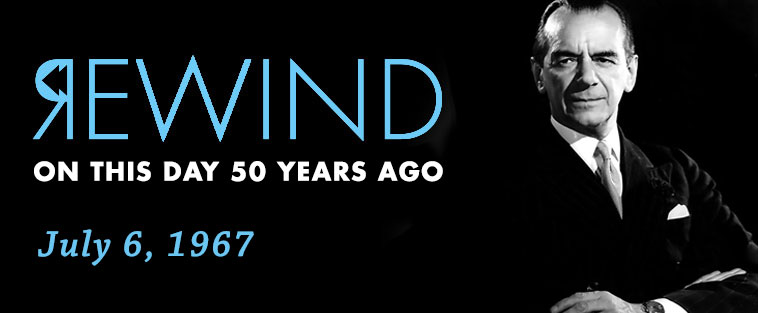
As America had Robert Shaw, so Britain had Malcolm Sargent. Both dubbed the “deans of choral music” of their respective nations, both also had uncanny command of music that did not feature the voice. And just as Shaw became a household name for his Christmas albums, so too did Sargent become a well-loved public figure through his many appearances on BBC radio and as chief conductor of the Proms for 20 years.
Rewind: June 28, 2012
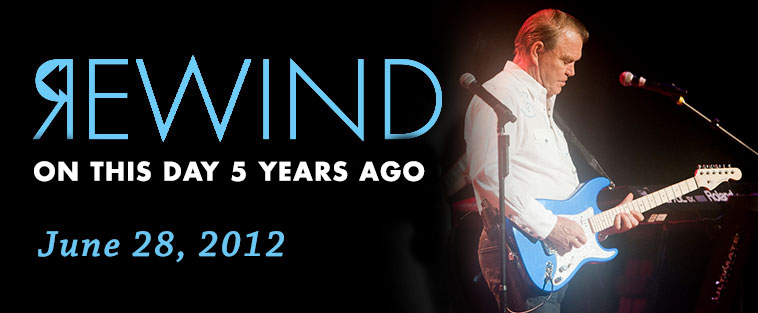
There are goodbyes, and then there are farewells. When Glen Campbell embarked upon his career-concluding tour in 2012, which included a stop at Ravinia on June 28, there was a sense that he really wanted to do his fare well for his generations of fans, and also for himself.





